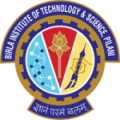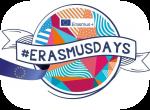Industrial partners of iBrain presentation
We invite you to Erasmus days, where the industrial partners of iBrain - NeuroTrend, Mitsar and Fusion Agency, will present their companies, activities and prospects for students. There you will learn about webinars, hands-on labs, internships and job prospects.
The presentation language is Russian.
Date: 15 October 2021
Time: 14:00 (Moscow time)
iBrain ERASMUS Day 2021
We are pleased to invite you to ERASMUS day, where the industrial partners of iBrain - NeuroTrend, Mitsar and Fusion Agency, will present their companies, activities and prospects for students. There you will learn about webinars, hands-on labs, internships and job prospects.
Date: 15 October 2021
Time: 14.00 (Moscow time)
Link
Erasmus Days
We invite you to Erasmus days, where the industrial partners of iBrain - NeuroTrend, Mitsar and Fusion Agency, will present their companies, activities and prospects for students. There you will learn about webinars, hands-on labs, internships and job prospects.
Date: 15 October 2021
Time: 14.00 (Moscow time)
Link
How To Conduct Speech Experiments
Dear workshop participants
This event will be held at the Laboratory of Behavioral Neurodynamics of St. Petersburg State University. Address: St. Petersburg, nab. Makarova 6, room 228 (2nd floor).
Event program:
10:45 - 11:00 Registration of participants
International School of Social Neurosciences 'Inter-subject Correlation Analysis of fMRI Data: Hands-on Learning'
About the school
The most common way to analyze brain imaging data collected during naturalistic stimuli is to use the Intersubject Correlation (ISC) method. Based on linear correlations between individuals, this method measures the level of similarity of brain activity.
Modelling the effects of transcranial alternating current stimulation on the neural encoding of speech in noise
Transcranial alternating current stimulation (tACS) can non-invasively modulate neuronal activity in the cerebral cortex, in particular at the frequency of the applied stimulation. Such modulation can matter for speech processing, since the latter involves the tracking of slow amplitude fluctuations in speech by cortical activity. tACS with a current signal that follows the envelope of a speech stimulus has indeed been found to influence the cortical tracking and to modulate the comprehension of the speech in background noise.
The when and what of episodic encoding
In striving for experimental control, studies of human episodic memory have focused mainly on encoding of brief, stationary events. Such events, while providing a high degree of control, bear little resemblance to real-life memory and constrain the questions that can be asked. I will demonstrate how use of naturalistic stimuli enables us to address previously unaskable questions, discussing a set of fMRI studies in which we asked when episodic memories are formed.
The when and what of episodic encoding
In striving for experimental control, studies of human episodic memory have focused mainly on encoding of brief, stationary events. Such events, while providing a high degree of control, bear little resemblance to real-life memory and constrain the questions that can be asked. I will demonstrate how use of naturalistic stimuli enables us to address previously unaskable questions, discussing a set of fMRI studies in which we asked when episodic memories are formed.
The self- and other-referential processing
The nature of self is one of the most controversial questions throughout the history of philosophy and science. Different approaches emphasize different aspects of this construct including emotional, cognitive, and social self. Moreover, some authors deny its reality altogether claiming that the self is just an illusion. From the point of view of social science, the intersubjective or social aspects are the most important aspects of self.












